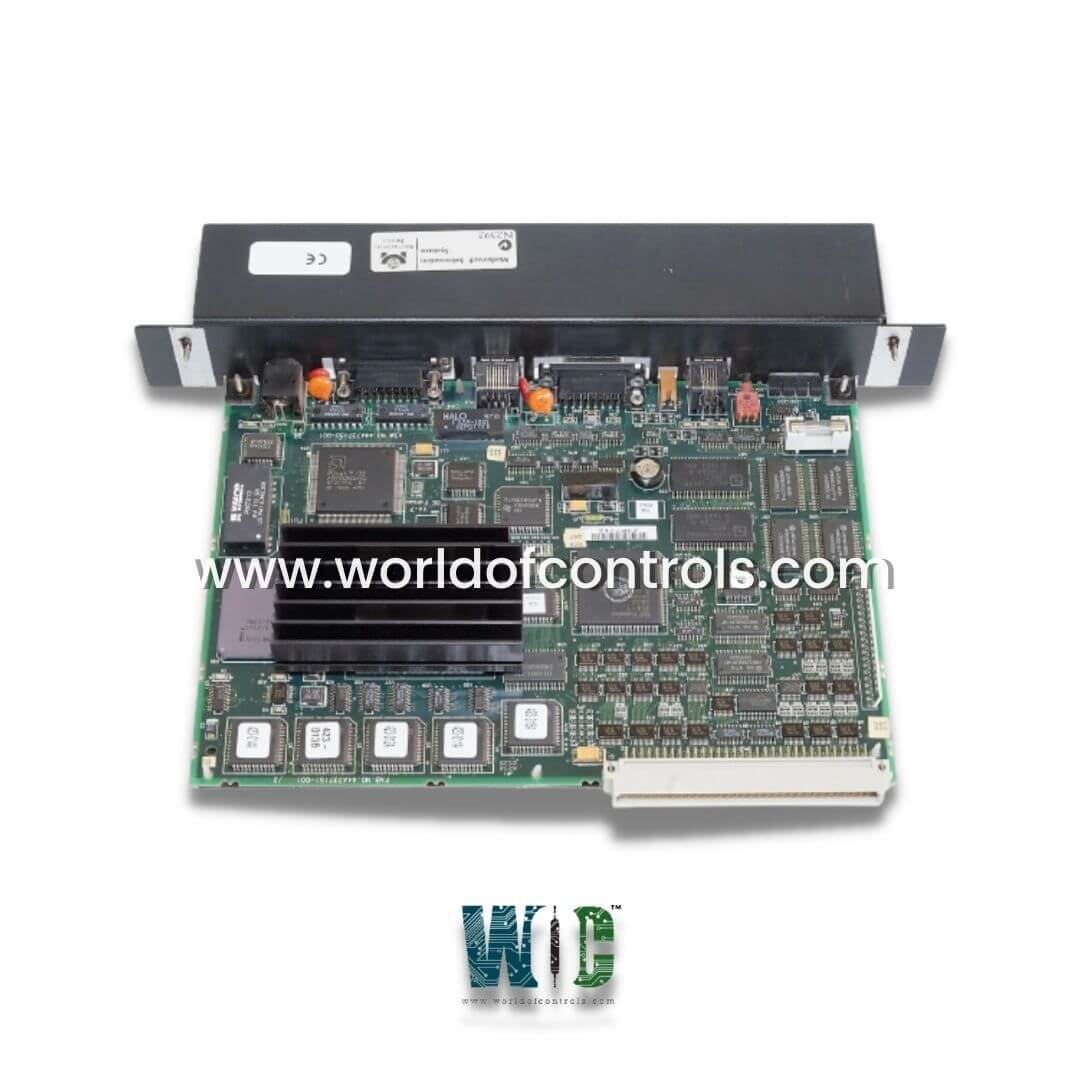
World Of Controls understands the criticality of your requirement and works towards reducing the lead time as much as possible.
IC697CMM742 - TCP/IP Ethernet Interface Module is available in stock which ships the same day.
IC697CMM742 - TCP/IP Ethernet Interface Module comes in UNUSED as well as REBUILT condition.
To avail our best deals for IC697CMM742 - TCP/IP Ethernet Interface Module, contact us and we will get back to you within 24 hours.
SPECIFICATIONS:
Part Number: IC697CMM742
Manufacturer: General Electric
Series: 90-70
Protocol Support: Genius
Product Type: Ethernet Interface Module
Number of Network Ports: 3
Number of LEDs: 4
Network Ports: 10BaseT Port: Ethernet
Bus Type: Daisy-chained bus cable
AUI Port: Ethernet, IEEE 802.3 CSMA/CD
Current Consumption: 300mA
Internal fuse: 5 x 20mm, 250V, 1.0A
Data Length: 128 bytes per message
Module Operating Voltage: +5 VDC, +12 VDC
Module Current Draw: 2.0 Amps (+5 VDC)
Voltage: 5 Volts DC
Weight: 0.37 Kg
Shipping weight: 1.5 Kg
Country of Origin: United States
Availability: In Stock
Manual: GFK-1309E
FUNCTIONAL DESCRIPTION:
IC697CMM742 is a TCP/IP Ethernet Interface Module manufactured and designed by GE Mark 90-70 Series as part of the GE Speedtronic Gas Turbine Control Systems. The Ethernet Interface (Type 2) provides high-performance TCP/IP communications for the IC697 PLC. The Ethernet Interface plugs into a single slot in an IC697 PLC rack and is configured with the IC641 PLC programming software. Up to four Ethernet Interface (Type 2) modules can be installed in an IC697 PLC CPU rack. The Ethernet Interface (Type 2) contains three network ports: 10BaseT (RJ-45 connector), 10Base2 (BNC connector), and AUI (15-pin D-connector). The Ethernet Interface automatically selects the network port in use. One network port may be used at a time. The 10BaseT network port permits direct connection to a 10BaseT (twisted pair) network hub or repeater without an external transceiver. The 10Base2 network port permits direct connection to a 10Base2 (ThinWire) network without an external transceiver. The AUI network port permits attachment of a user-supplied AUI (Attachment Unit Interface, or transceiver) cable. The AUI cable connects the Ethernet Interface to a user-supplied transceiver that is directly connected to the 10Mbps Ethernet network. The transceiver must be 802.3-compatible and must have the SQE option enabled.
INSTALLATION:
To install the TCP/IP Ethernet Interface Module, first power down the PLC and insert the module into an available slot in the PLC rack, ensuring it is fully seated. Connect the module to the Ethernet network using a standard CAT5/6 cable. Once powered on, configure the module through the PLC programming software, setting the IP address, subnet mask, and other network parameters. Verify proper operation by checking the module’s status indicators and ensuring communication with connected devices is established. Read and record the 12-digit Default Station Address from the printed label on the Ethernet Interface. Slide the Ethernet Interface into the slot for which it was configured in the system - normally the first available slot to the right of the CPU or Bus Transmitter Module (BTM). Connect one of the network ports on the Ethernet Interface to the Ethernet network. If you are using an external transceiver, connect the transceiver cable to the AUI port on the Ethernet Interface. The other end of the transceiver cable should be connected to an external IEEE 802.3 compatible transceiver that is connected to the Ethernet network.
IEEE 802.3 MEDIA:
The Ethernet Interface (Type 2) can operate directly on 10BaseT or 10Base2 media via its 10BaseT and 10Base2 network ports. These media are described below. Additionally, the Ethernet Interface (Type 2) can operate on any of the media listed below with the appropriate user-supplied transceiver and transceiver cable via its AUI network port.
WOC has the largest stock of OEM Replacement Parts for GE Speedtronic Turbine Control Systems. We can also repair your faulty boards and supply unused and rebuilt boards backed up with a warranty. Our team of experts is available around the clock to support your OEM needs. Our team of experts at WOC is happy to assist you with any of your automation requirements. For pricing and availability on parts and repairs, kindly contact our team by phone or email.
What is a TCP/IP Ethernet Interface Module?
A TCP/IP Ethernet Interface Module is a device that allows industrial equipment, PLCs, or control systems to communicate over an Ethernet network using the TCP/IP protocol. It enables remote monitoring, configuration, and data exchange between systems.
What are the common applications of this module?
These modules are commonly used in SCADA systems, industrial automation, remote data acquisition, energy management systems, and machine-to-machine communication.
What is the difference between TCP/IP and UDP communication in these modules?
TCP/IP offers reliable, connection-oriented communication suitable for most control applications. UDP is faster but less reliable and is used for time-sensitive data where occasional packet loss is acceptable.